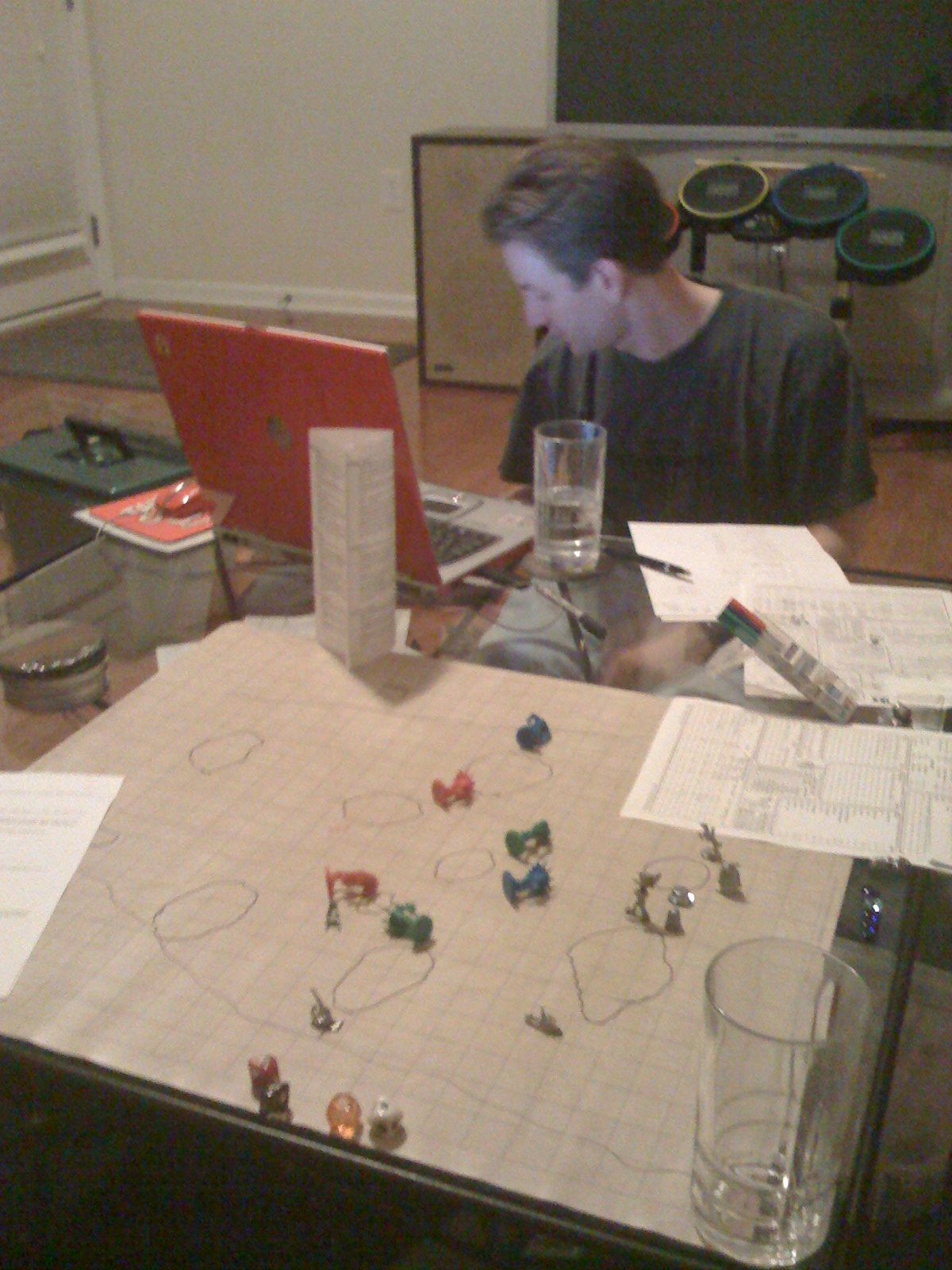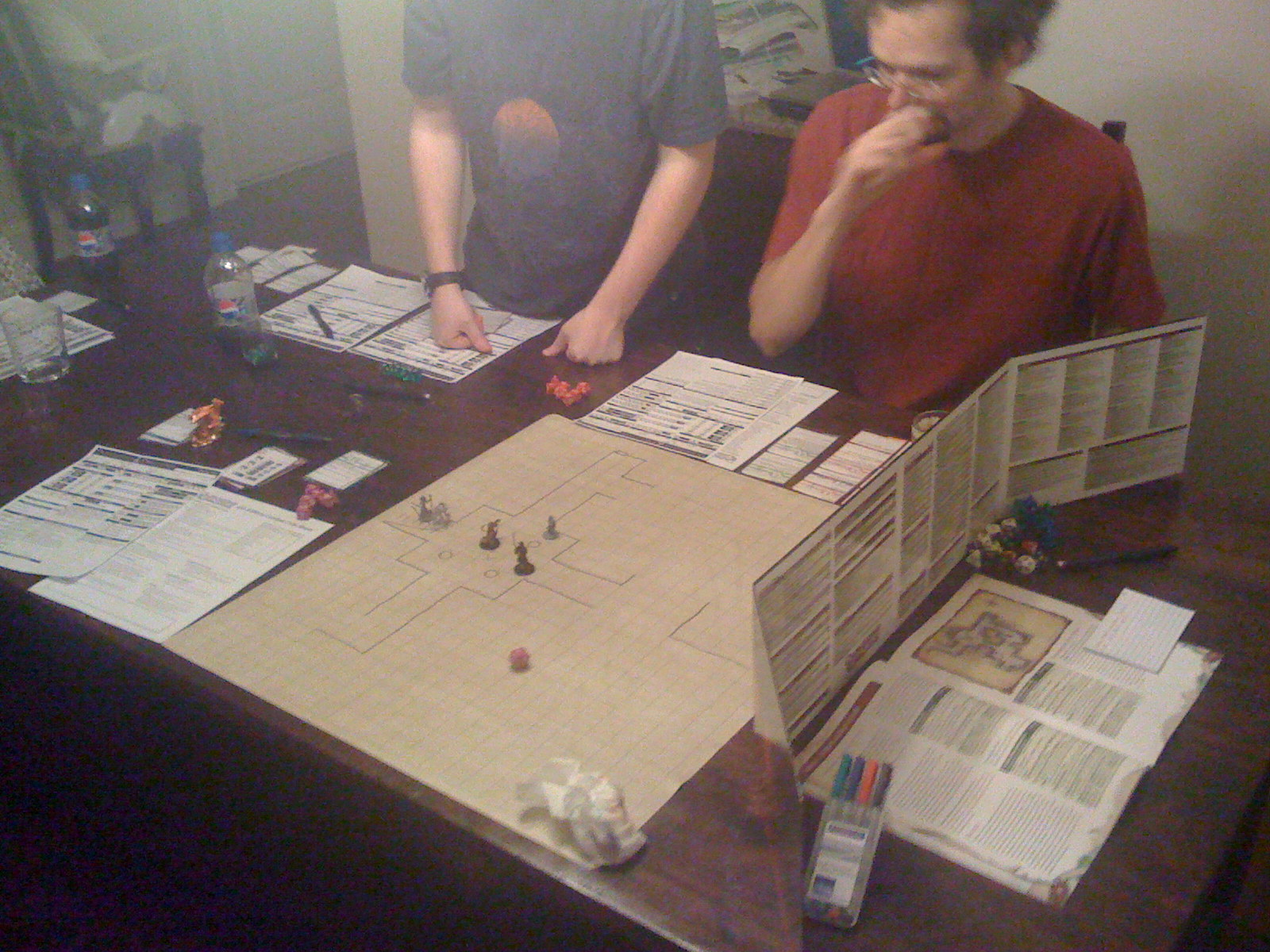
More RPG fun! This time, I get to play. And talk. And mostly crack jokes and complain. We made it to the end of combat, which makes the fight pretty fast for how many enemies and players there are. This is a homebrew setting on top of the Buffy game system, fashioned from sticks and some model glue by the GM, Stone. Tonight we used a battle mat to run combat … and combat seemed better. A revelation! Combat with miniatures is better?! Wah?
Obviously my big metal robot leanings have exposed me to miniatures combat from the first days of my RPG life. Battletech, Aerotech specifically, was my serious indoctrination into the hobby, and those games are seriously miniatures and map centric. And then I played a bit of Robotech, never using a map or a miniature. All those times I played both with and without maps and miniatures, and I never really looked into how combat unfolds in each. The maps make a large difference in how I see combat and my options.
Without the maps, combat is often randomly direct attacks between enemies and player characters. Lots of time and effort have to be expended by the GM keeping the scene straight and conveying it clearly to the players. Maybe that’s advanced play. And maybe if your games are combat light, it’s no big deal. I am seeing that a map and character markers are really valuable tools. Focusing fire, creating bottlenecks, flanking, and many other tactical options come into tangible view on the table. Even if the game system doesn’t specifically reward these maneouvers, it can help facilitate more teamwork. And in my specific game night of play, it can even help everyone get a quick look at the situation and decide what to do, because someone told a really funny joke and you weren’t paying attention. Now the GM doesn’t have to re-explain what just happened, or tell you which enemy is in sight or posing the greatest threat.
And why is this anything even close to a surprise for myself? Mostly because I used to consider maps as a crutch, or a distraction. Too “game-ist” or “simmulation-ist” maybe. In my eyes, table-top gaming was just a complex board-game and had no place in role playing games. Would people who want to play an RPG be ok if I whipped out a map, some miniatures, and started a game of Battletech in the middle of their game? My recent experiences with Fallout and D&D 4e seem to indicate that it will work fine. Would it work with every system? Probably not. But when it does, I think it’s a great way to enhance the combat in a game.


